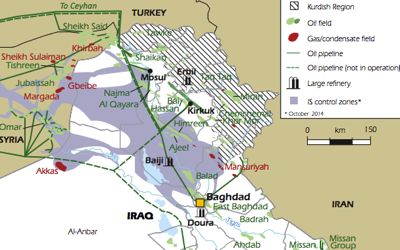
According to the International Energy Agency, established in the framework of the OECD, the US Coalition air strikes against the Islamic State stopped the looting of Iraq’s oil, but have made no dent in curbing that of Syria’s [1].
In its monthly report, the IEA underscored that by 15 August the Islamic State was marketing 70,000 barrels per day, 10,000 of which from Syria and 60,000 from Iraq. Its sales are currently down to 20,000 per day, stolen equally from the two countries.
The IEA further asserts that the stolen oil was mainly exported via the pipeline connecting Doura in Iraq to the port of Ceyhlan in Turkey, and by truck from Iraq’s Ajeel oil field to Iraqi Kurdistan. The number of truck supposedly dropped from 120 to 10 per day.
The US Coalition bombing campaign kicked off when the ethnic cleansing of the Iraqi Sunni area had been completed and was starting in Syria. At no time did the strikes target the strategic interests of the Islamic State, nor did they impact the battle theater. The air strikes are therefore not intended to prevent ethnic cleansing, but to defend Western oil interests in Iraq.
In Syria, the bombing did not reduce the amount of stolen oil, but has merely deprived the Islamic State of refined gasoline.
[1] Oil Market Report, International Energy Agency, October 14, 2014























Stay In Touch
Follow us on social networks
Subscribe to weekly newsletter